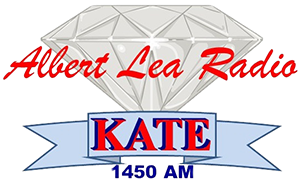Cooperative development grant bill heard in Senate committee

A bill to fund cooperative development grants was laid over for possible inclusion in the omnibus agriculture bill after a hearing in the Senate Committee on Agriculture, Broadband, and Rural Development on Monday.
The bill, SF1256, is sponsored by Sen. Heather Gustafson, DFL-Vadnais Heights, and co-sponsored by Sens. Bruce Anderson, R-Buffalo; Gene Dornink, R-Hayfield, and Judy Seeberger, DFL-Afton. It allocates $400,000 in fiscal years 2024 and 2025 for cooperative development grants. The House companion bill, HF1034, is led by Rep. Kristi Pursell, DFL-Northfield, and has 22 co-authors.
In her testimony before the committee, Gustafson said the legislation builds on work started last session to re-establish cooperative development grants. The language mirrors legislation that was in effect prior to 2003, when the grants were cut due to a state budget deficit. The grants will help farmers develop cooperatives to process and market products grown in Minnesota. Cooperatives are a way to diversify farm income, develop supply chains for emerging crops and keep more wealth in rural communities, Gustafson said.
Cooperatives are well-known and well-respected in Minnesota, said Kevin Edberg in his testimony. Edberg, who formerly worked for the Minnesota Department of Agriculture, is the executive director of Cooperative Development Services (CDS), which works to start and grow cooperatives in Minnesota, Iowa and Wisconsin. Last year, CDS assisted more than 100 cooperatives. Minnesota is also home to the nation’s largest cooperative.
Cooperatives aggregate purchasing power, allow for distribution of net income in fair and reasonable ways and deal with issues of aggregating capital and monopoly power that are rampant in the U.S. economy, Edberg said.
“Developing a cooperative is a lot of work, but it’s also empowering for farmers so I’m proud that Minnesota Farmers Union is leading on this issue,” said Minnesota Farmers Union (MFU) Vice President Anne Schwagerl, who is involved in establishing a cooperative to market kernza. “Farmers are growing kernza, but there isn’t an established marketing channel. Our cooperative is helping farmers diversify their income, grow a new crop with environmental benefits and keep more money in our communities. A grant to help cover some of the start-up costs would help more fledging cooperatives launch in Minnesota.”
Minnesota is the home state of Rep. Andrew Volstead, who was the House sponsor of the Capper-Volstead Act, known as the Magna Carta of Cooperatives, which was signed into law on Feb. 18, 1922.

